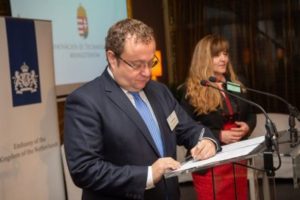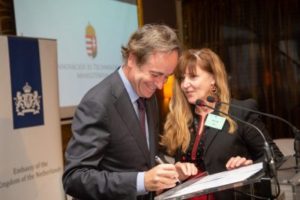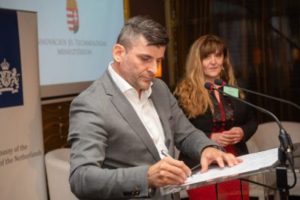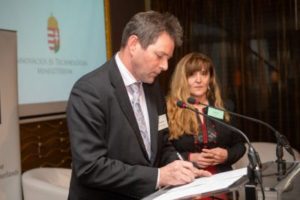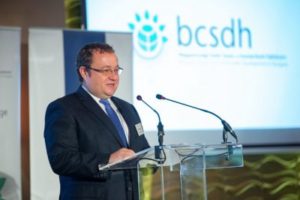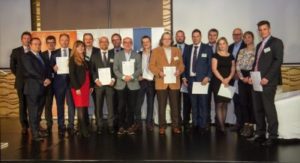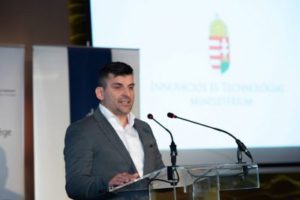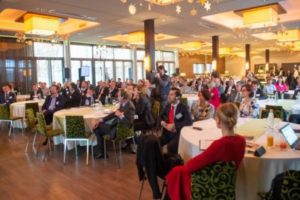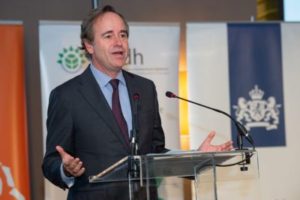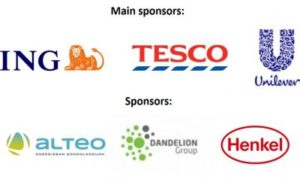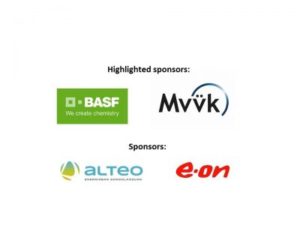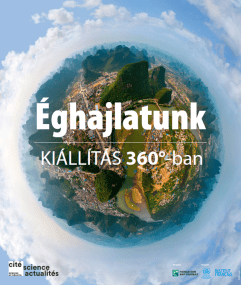The Coca‑Cola System introduces innovative KeelClip™ packaging technology on multipack cans in Europe: a first for the NARTD industry
- KeelClip™ to initially roll out in Ireland, the Netherlands and Poland early next year
- Minimalist recyclable paperboard “topper” replaces plastic shrink film
- Move supports Coca‑Cola’s global goals to work towards a World Without Waste, where all packaging is collected, recycled and reused.

Coca‑Cola and its strategic bottling partners Coca‑Cola HBC and Coca‑Cola European Partners have today announced that they will begin rolling out the KeelClip™, an innovative, minimalist paperboard packaging solution, on multipack cans across Europe. This move, representing a first for the non-alcohol ready-to-drink (NARTD) industry, underscores the Coca‑Cola system’s commitment to pioneer packaging solutions that are more sustainable in terms of recyclability and overall environmental footprint as it works towards its global goals for a World Without Waste.
The three partners have worked closely with Graphic Packaging International – developer of the KeelClip™ technology – to bring this sustainable packaging solution to market. This new type of packaging not only replaces the plastic wrap, but also minimizes the amount of paper/card required.
As part of this initiative, Coca‑Cola HBC will remove shrink wrap from all of its can multipacks in all European Union markets by the end of 2021. In total, Coca‑Cola HBC will invest €15 million in KeelClip™ and will begin the roll-out in Ireland and Poland early next year, followed by Austria, Italy, Switzerland and Romania in 2020. All of Coca‑Cola HBC’s European Union markets will have KeelClip™ by the end of 2021. This will save 2,000 tonnes of plastic and 3,000 tonnes of CO2 annually. The KeelClip™ will be used on all can multipacks of up to eight cans, larger can multipacks will be bound by a carton pack.
Coca‑Cola European Partners committed in October to removing all unnecessary or hard to recycle plastic from its portfolio, avoiding the use of more than 11,000 tonnes of virgin plastic a year across the countries where it operates. It will roll-out KeelClip™ in the Netherlands early next year with more markets to follow, investing €14 million in its factory in Dongen, Netherlands to install a new can line and a KeelClip™ packaging machine.
 “KeelClip™ is our latest investment in innovative, sustainable packaging solutions. Alongside the four water brands we introduced this year in 100% recycled PET bottles, the increased use of recycled PET and continued lightweighting across the portfolio, KeelClip™ is another demonstration of our commitment to delivering our World Without Waste goals.”-Marcel Martin, Group Supply Chain Director, Coca-Cola HBC
“KeelClip™ is our latest investment in innovative, sustainable packaging solutions. Alongside the four water brands we introduced this year in 100% recycled PET bottles, the increased use of recycled PET and continued lightweighting across the portfolio, KeelClip™ is another demonstration of our commitment to delivering our World Without Waste goals.”-Marcel Martin, Group Supply Chain Director, Coca-Cola HBCJoe Franses, Vice President, Sustainability at Coca‑Cola European Partners said: “Innovation is a key principle of our sustainable packaging work and the application of this fully recyclable paperboard KeelClip™, which comprises a top board that the cans clip into and a central cardboard ‘keel’ – similar to a ship’s keel – that stabilises the pack, is another example of how we are delivering on our commitment to remove all unnecessary and hard to recycle single-use plastic from our products.”
Steve Gould, Graphic Packaging International’s new product development and marketing director, beverage division, Europe said: “The KeelClip™ technology is effective for can multipacks of various diameters and heights. This means that we can provide a safe, effective package with no need for secondary plastic. When businesses such Coca‑Cola HBC and Coca‑Cola European Partners invest in these technologies, we can really make a difference to the way we package goods and drive the industry to continue to change too.”

